Welcome to the pages of my Travel Journal. This particular post comes to you from Greece. For even lighter, quicker reading, you might prefer my series of Sketches.
As the new warmth of April began to turn up the pressure on the freshness of spring, life quietened down in the hills above Sparta. I listened as the daily chorus of distant chainsaws thinned out, and the episodes of quietness became longer. The annual ban on bonfires approached. Soon warmth would become heat.
Bonfires, lit early each morning, are the only practical way of disposing of so many thousands of pruned olive branches, but the risk of wildfires during the drier months necessitates a ban. Everyone takes it seriously. By the second week of April, already the earth felt dangerously dry after a fortnight without rain, and memories of wildfires that have ravaged the Peloponnese (especially in 2007) can bring to the brink of tears the men whose duty it has been to fight the flames.
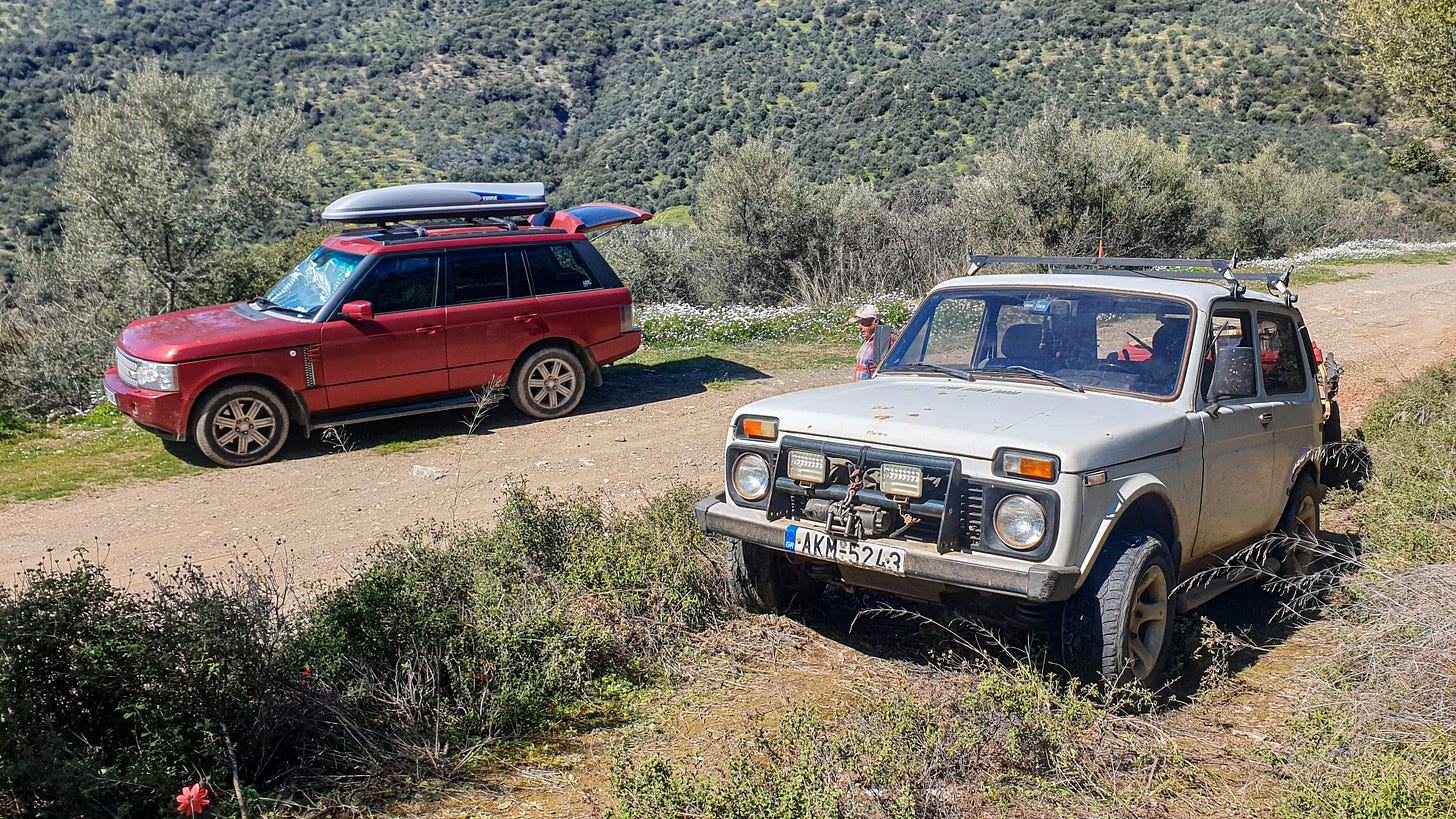
"I hope a wildfire never happens here," I had said to Giorgos during a lunchtime break for salami, a beer and a cigarette a couple of weeks earlier. It seemed a pathetic thing to say, but as we perched on a rock looking out over the valley of olives, I felt the sentiment needed voicing.
"I hope the same," he said quietly, as if it wasn't so pathetic after all. We'd been working together clearing decades of untamed growth and stoking a bonfire since 7:30am, from the coolness of morning to the shimmering intensity of a blue-sky afternoon. It was nothing compared to the heat that will bake these hills in the months to come, but it was perhaps the first day of the year when a cold beer and a patch of shade to drink it in felt almost like a human right.
At the day’s end, Giorgos yanked on the chord that fired his water pump into life and extinguished the flames from the 800-litre water tank that he’d towed here for the purpose. Long after I thought the fire was out, he was unearthing new embers smouldering beneath the soil and giving them yet another dousing.
(Burning undergrowth – unleashing carbon, exacerbating the problem… A slight pang of guilt, although new growth will soon replace it, continuing the carbon cycle. I feel worse about the biodiversity loss that comes from thinning vegetation and from preventing the natural decay of dead wood. Small consolation comes from the knowledge that dead wood increases the risk of wildfires, fruit trees lose productivity unless pruned, and no homestead can be established without some limitations on the encroachment of wilderness. But there’s no getting away from the rather more significant fact that I’d got here by crossing Europe in a 4x4. I’m looking forward to e-fuels, like this, becoming mainstream.)
I spent those dry weeks exploring Mani, the wild and strange peninsula to the south of Sparta, and returned to my derelict hillside house to find a noticeable change in the plant life. March had been just as colourful as April, but the colours now were different, as some flowers had faded while others burgeoned into life. Certain trees had suddenly shot away – one species (a type of myrtle, I think) had boosted upwards by over a foot, and wild asparagus had become easier to find, much of it now four feet high.
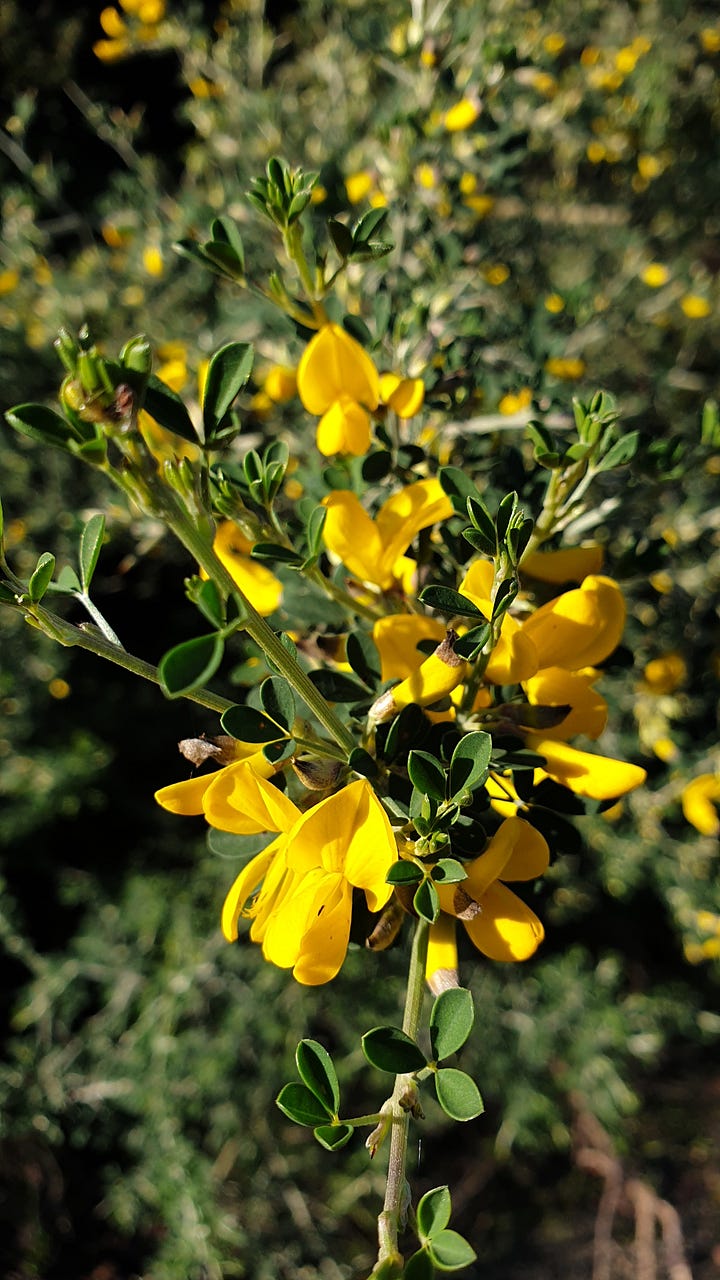
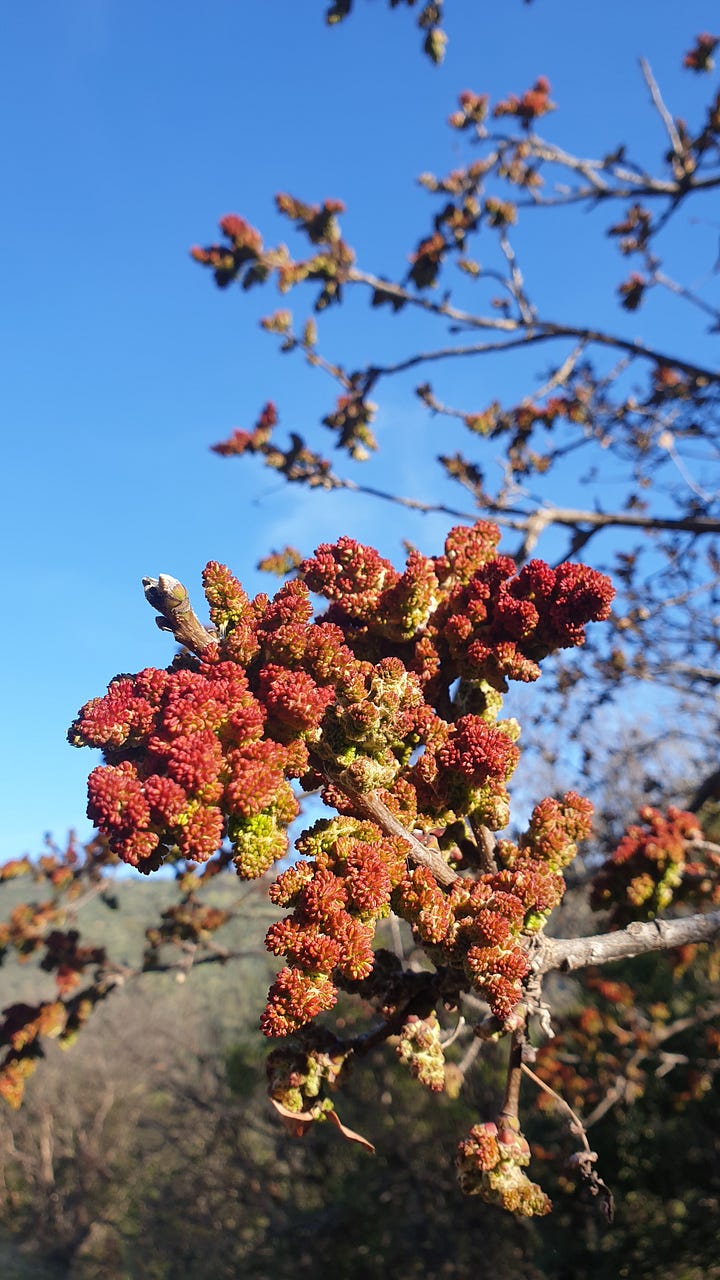
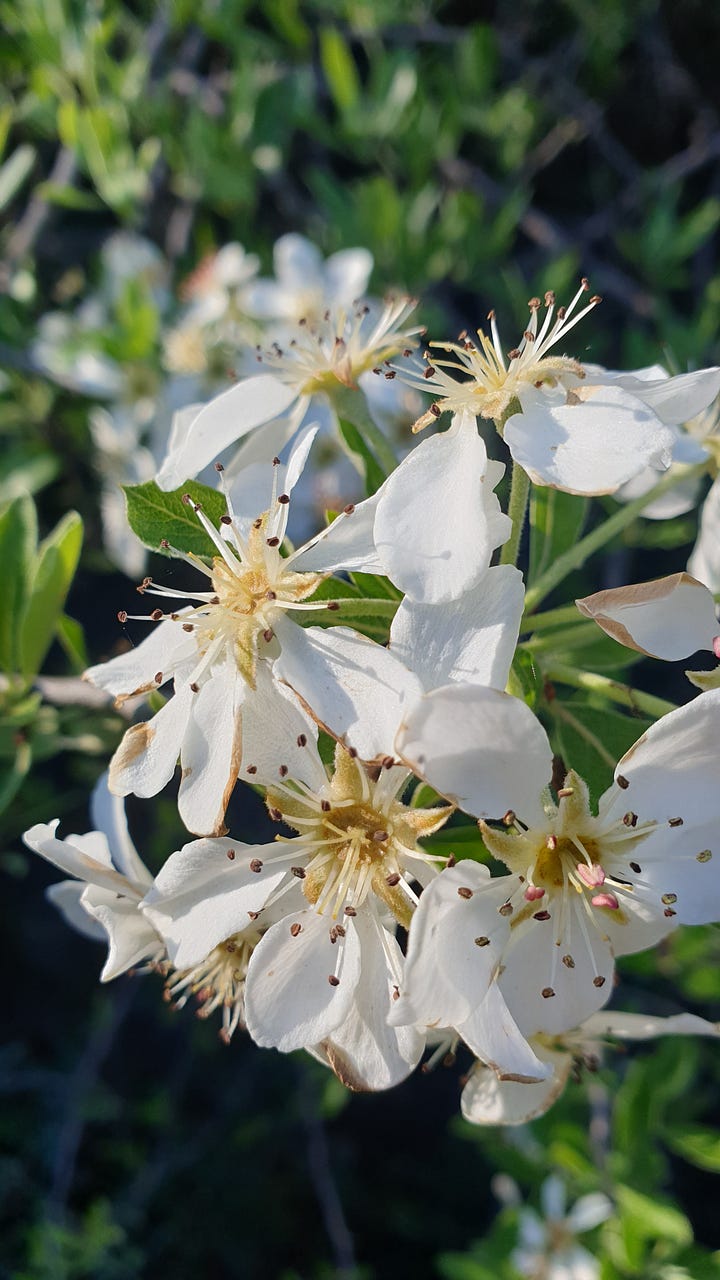
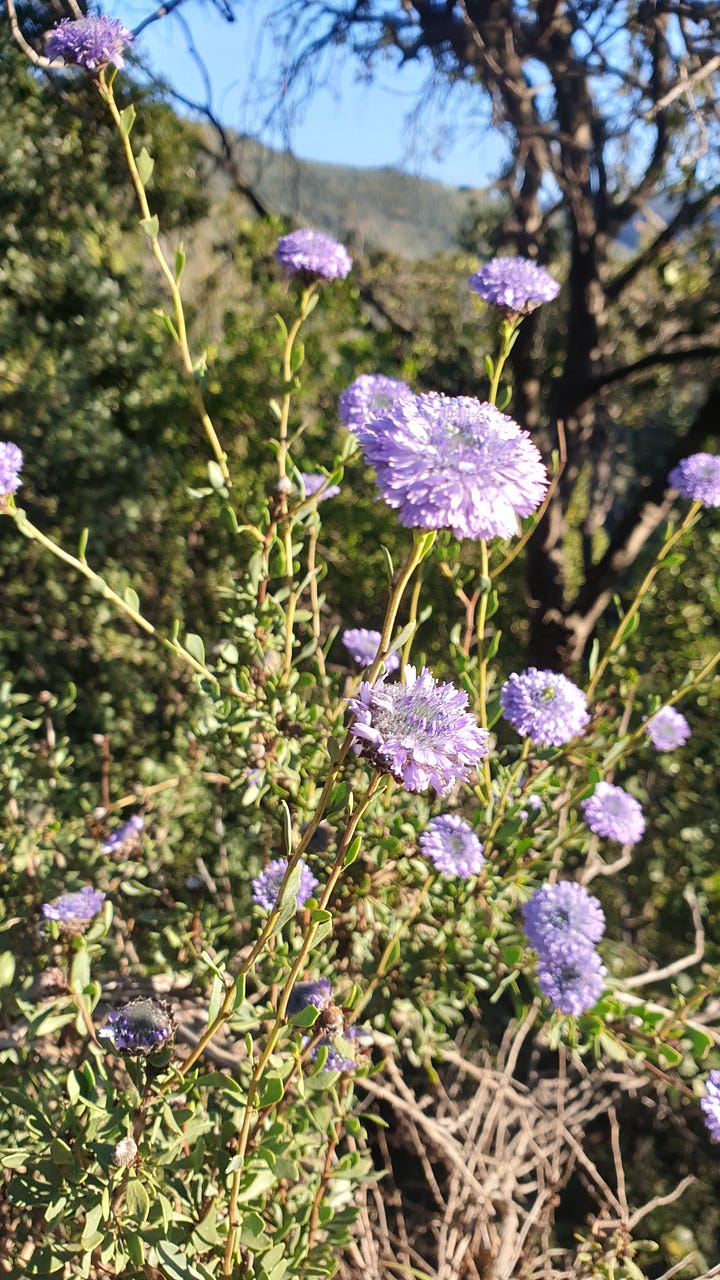
I reckon most gardeners are morning people. That first half-hour before breakfast, before the commotion and appointments and the bombardment of crap that the day is about to throw at you, is a blessed window to be outside with the birds doing something practical, changing something tangible. I pretended that I too was a morning person as I got to work on my final day planting a few herbs around the house before the sun rose above the hilltop. Most of my earlier outdoor work had been destructive, so it felt salutary to invert my benign tyranny over the place by introducing new life. They're mostly lavender plants (a scorpion deterrent) and one marjoram, just because it looks and smells dreamy. The house is already surrounded by wild thyme, which I had guessed by its fragrance when I first arrived although it took me a couple of weeks to "get my eye in" and notice where to find it.
I also made a last trip up the steep hillside above the house to a flat patch of earth where I’d planted a few sprouting potatoes, to make sure they hadn't been snuffled out by the families of wild boar (including teeny hairy piglets) that call this place home. Sure enough, a boar clearly had been there. Judging by the circle of flattened grass, it had walked in little circles to bed down for the night, as Alfie likes to do, but it had the good manners to leave my spuds untouched just a couple of meters away. Perhaps it's holding off until they've sprouted spudlets of their own... which is my plan too. Something tells me I’m going to lose this race.
Lizards flickered and scurried about the place, keeping Alfie's hairy ears agog. They're beautiful things and I don't mind them one bit (the lizards, but also Alfie's ears). He eventually learned that they’re too fast for him to catch, but I do worry about him pouncing on something more dangerous.
"Last year I saw a snake right here!" said Thanasis on a recent visit, pointing to a pile of rocks outside my front door. (Thanasis is a legendary human being; olive farmer, multi-prize-winning jockey, guitarist, Lada Niva aficionado and prolific builder – still at it despite being twice my age – and one of the kindest people I've met. I'll write more about him later.)
"Not poisonous," Giorgos added immediately.
"No no, not poisonous," agreed Thanasis, followed by a short but uncharacteristic silence. Something told me that Giorgos's qualifier had been added to avoid spooking the floundering foreigner in their midst, so maybe the serpent really had been lethal. Eek...
Despite the need to be watchful, there's a profound feeling of natural abundance in this landscape. Though the soil is rocky and water is scarce, the hills fume with life, much of it fit to eat. You’re blessed with sunshine to bask in and endless dry firewood to stave off the winter chills. For someone used to the wet, congested, depleted United Kingdom, it’s impossible to come to the Peloponnese without reconsidering what really constitutes a comfortable and healthy life – and how simple it should be.
I was sad to leave, especially as my intention to fix the roof during this visit had turned out to be overly ambitious, but my stay had been productive in other ways. Perhaps my main achievement, ironically, was to find peace with a kind of internal slowness, to devote days to achieving little without therefore sitting under a cloud of guilt. I knew at the start of this journey that there was something I needed to figure out, something that I probably could not achieve simply by thinking it through. Time had to be part of the process. Not all forms of knowledge can be derived purely from rationalising your way from a premise to a conclusion; embodied knowledge comes only from experience, and sometimes practice, and that has to be played out in time. The result is the difference between a hardware upgrade and a software update. Exactly how this works, I don’t know.
But I do know that the creation of a window in my calendar in which I gave myself permission to rest and sleep and work only at a very gentle pace felt new and positive. That window is over now, because obviously this kind of lazy behaviour doesn’t work in “the real world” – whatever that is.
My slow days here helped me develop a clearer vision for what to do with this place, and I've now gathered the practical knowledge and sources which will enable work to begin properly once I've scraped some money together. Over the coming years, a liveable retreat will hopefully take shape.





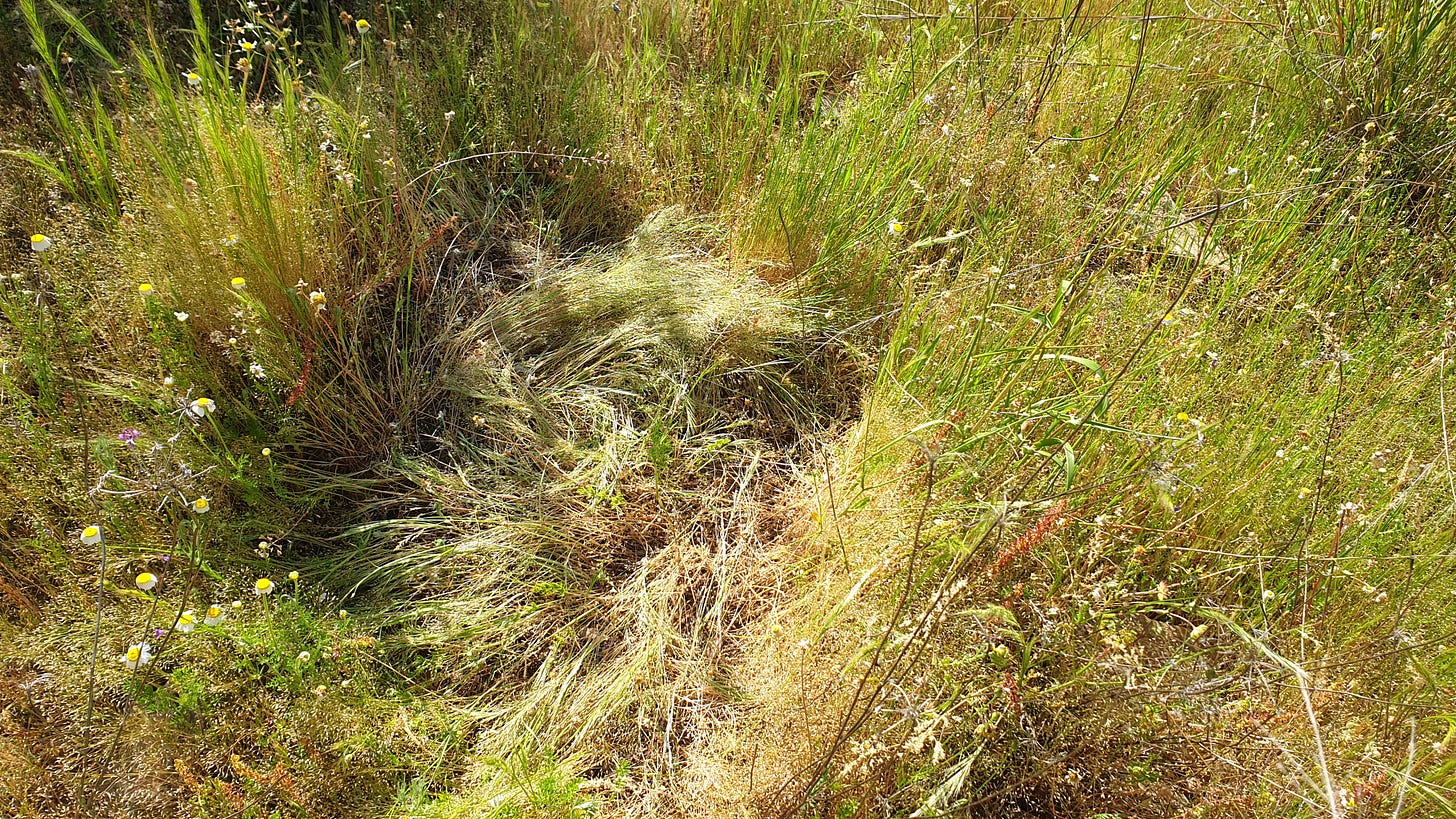


Lovely piece ! I loved your other pieces too. I'm sure you are going to love staying in your homestead. Keep writing . Here's a small blog about sifnos in the cyclades. https://threebearstravel.com/2024/05/15/kindness-and-miracles-in-sifnos/.
You would love it in sifnos ! Cheers